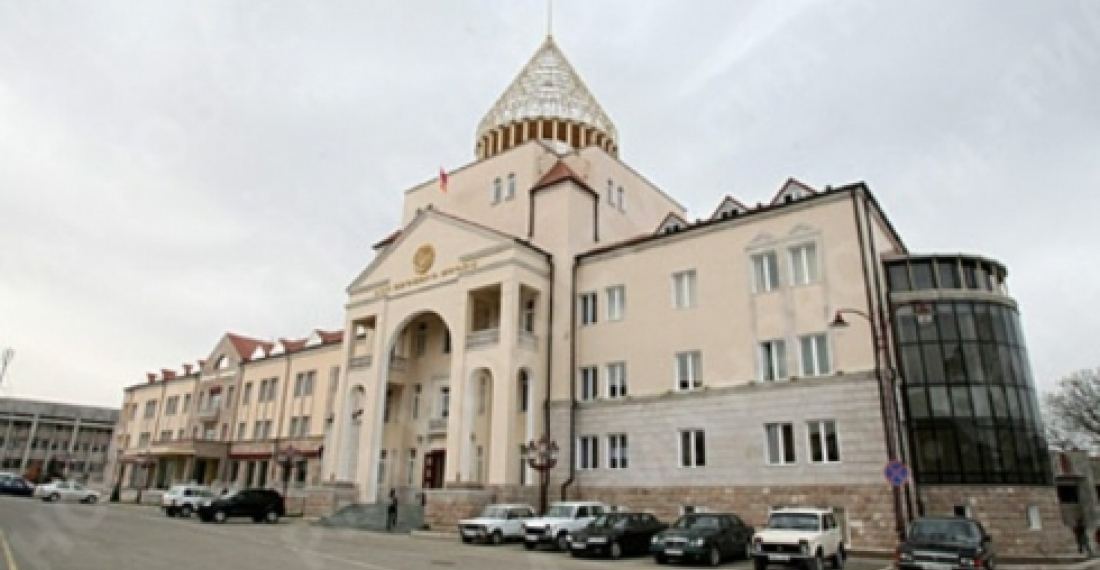The Nagorno-Karabakh conflict is a topic that these days is often discussed in academic discussions in different parts of the world.
This week, in the Pakistani capital Islamabad the Magazine "Diplomatic Insight" organised a seminar with the title "Nagorno-Karabakh and Kashmir: Two Nations Same Pain" at National Library of Pakistan. The seminar was organized to draw attention of the world community about the two long standing and unresolved simmering conflicts in Caucuses and South Asia- Nagorno-Karabakh and Kashmir.
The Ambassador of Azerbaijan to Pakistan, Mr. Dashgin Shikarov, spoke on the Nagorno-Karabakh conflict. According to the Pakistani newspaper Financial Daily the Ambassador said that "it is important to mention that Pakistan has taken a stand on the issue of Nagorno-Karabakh and did not establish relations with Armenia due to occupation of Azerbaijani lands. He paid tribute to Foreign Relations Committee of the Senate of Pakistan for adopting a resolution on 1 February, 2012 which condemned the occupation of Azerbaijani territories and the genocide committed by Armenian armed forces in Khojali as well as called upon the international community to urge Armenia for implementation of the decisions of UN Security Council."
Asif Noor, Chief Editor of The Diplomatic Insight, after welcoming the guests highlighted the objectives of magazine which rest on the basis of "Peace Through Informed Dialogue". He said that the publication aims to connect a widely diverse, multicultural community to inspire action, provide publicity, media coverage and thereby creating general awareness of issues of international and domestic in nature. He said this seminar is first of its kind in a series of seminars that magazine intends to organize in the upcoming year.
Dr. Col. Muhammad Khan, Chairman, Department of International Relations, National Defence University highlighted the issue of Kashmir in its historical and human rights perspective. He said that Indian Occupied forces have committed worst kinds of human rights violations and there is a need for the world community to take notice of these to stop these war crimes at the earliest. Prof. Dr. Razia Sultana, Chairperson, Department of History, Quaid-I-Azam University presented her viewpoint about Nagorno-Karabakh issue. She said that the conflict has deep historical roots that needs to be understood in order to get a clear picture of today's conflict between Azerbaijan and Armenia.
In the meantime in Karabakh itself a scientific conference, devoted to the 20th anniversary of the declaration of the Nagorno-Karabakh Republic, got underway in Stepanakert. The two-day event will bring together political scientists and representatives of political organizations from Armenia and NKR, and analysts from Great Britain, Greece, and the Netherlands according to the web portal news.am
An Armenian National Assembly delegation, led by Deputy Speaker Eduard Sharmazanov, is attending the conference. The leader of the self-declared Nagorno-Karabakh Republic, President Bako Sahakyan is scheduled to meet with the conference participants on Sunday.
Commonspace.eu political editor said in a comment: "Events on Nagorno-Karabakh in international fora have increased over the last year. This in itself is a positive thing because it raises awareness of the issue in the international community. The best events remain those that offer different viewpoints as they promote dialogue and understanding even if the points of view are often in disagreement."
source: commonspace.eu with Financial Daily (Pakistan) and News.am
photo: The government building in Stepanakert (picture courtesy of Ria-Novosti)







